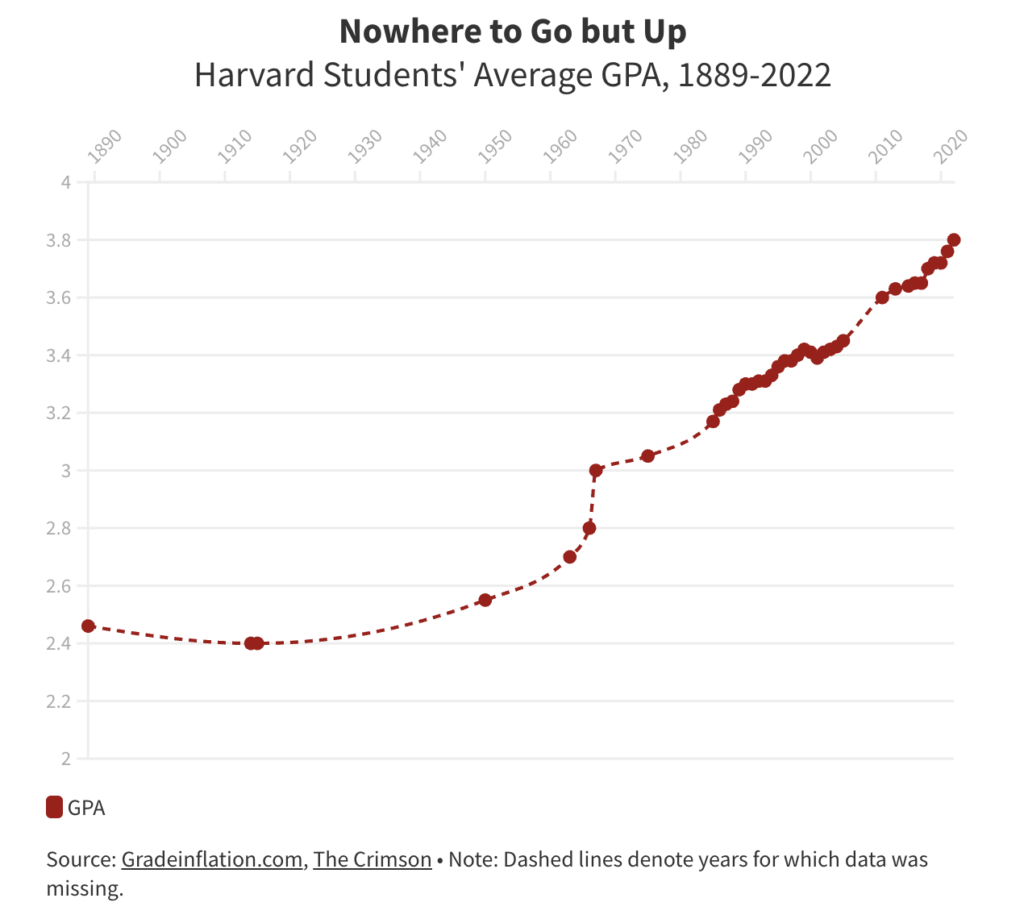Harvard Is Failing Its Students With Pervasive Grade Inflation, Internal Report Warns
More than 60 percent of grades awarded to Harvard undergraduate students are A’s.

Harvard University, widely regarded as America’s most prestigious institution, is failing at a fundamental academic responsibility — grading the students who are paying tens of thousands of dollars in annual tuition.
That’s the conclusion of a report released Monday by the Office of Undergraduate Education, which sheds light on the alarming extent of grade inflation at the Ivy League university.
According to the 25-page document, more than 60 percent of grades awarded to Harvard undergraduates are now A’s — up from 40 percent a decade ago and less than 25 percent two decades ago.
“Our grading is too compressed and too inflated, as nearly all faculty recognize; it is also too inconsistent, as students have observed,” the report’s author, a Harvard undergraduate dean, Amanda Claybaugh, wrote. “More importantly, our grading no longer performs its primary functions and is undermining our academic mission.”
Perhaps most troubling are the factors the report identifies as fueling this trend. According to the report, administrators have urged professors to consider students’ struggles with “imposter syndrome” — when students doubt their own abilities and feel inadequate — as well as difficult situations at home. “Unsure how best to support their students,” Ms. Claybaugh wrote, “many have simply become more lenient.”
Students themselves have also contributed to the problem, exerting what the report describes as “increasingly litigious” pressure on instructors to raise grades.

Ms. Claybaugh warned that Harvard’s current grading systems “are not only failing to perform the key functions of grading” but “are also damaging the academic culture of the college more generally.”
Harvard’s grade inflation follows a steady upward trajectory spanning more than a century. According to data compiled by the Harvard Crimson, the average GPA was 2.4 in 1914, rising to 2.55 by 1950 and reaching 3.17 by 1985. As the Crimson’s author observed, “Looking at a graph of student GPAs since 1889 is sort of like looking at a graph of Harvard’s endowment: It only goes up.”
Ms. Claybaugh’s report validates concerns raised by the Trump administration about grade inflation at Harvard and other elite universities. Last month, the federal government offered funding incentives to universities that sign a compact committing to “grade integrity,” among other provisions.
The issue was thrust to the forefront earlier this month when the New York Times published an article titled, “Harvard Students Skip Class and Still Get High Grades, Faculty Say.”
That article highlighted a January report on classroom culture, which found that students frequently skip class or arrive unprepared to contribute meaningfully. Yet “rampant grade inflation allows them to coast through anyway.”
Without genuine classroom engagement, the report concludes, “students are missing opportunities to hear the perspectives of other students with different viewpoints.”

